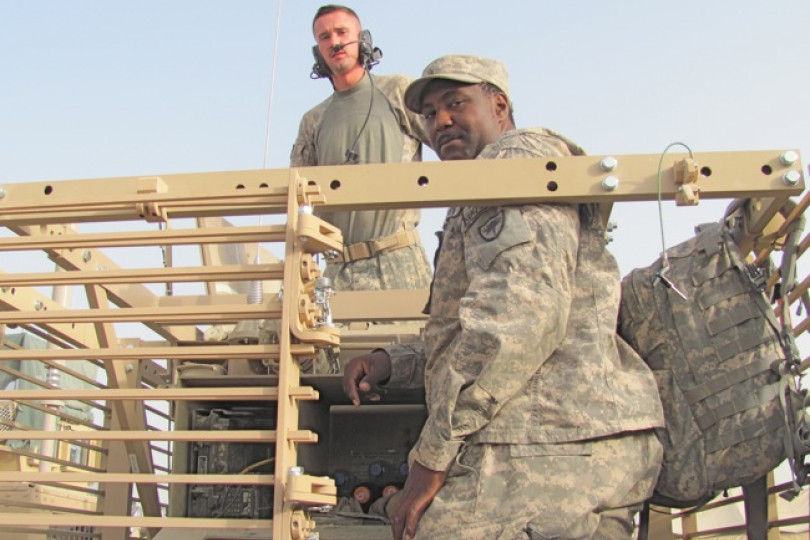Thomas Sibley’s communications job is critical and dangerous work
THOMAS SIBLEY, who joined Local 687 (Charleston Heights, S.C.) as an apprentice in 2006, is serving his country in Afghanistan as part of his reserve unit. The Army sergeant is the communications specialist in his company and his job is a vital one.
“I insure open contact between the route clearance patrols and the command and control center,” Sibley said. He is responsible for an estimated two million dollars worth of communications equipment. “Without the service I provide, no one would be able to communicate either internally or externally,” he said. “The company commander could not pass instructions to the line, operators would not receive mission data, and the unit couldn’t call in medical support when an injury occurs.
In order to keep these transmissions from being intercepted, Sibley maintains and updates the encryption for all of his company’s radios. His support is a critical link that allows his unit to accomplish its mission.
Part of Sibley’s work is spent standing in the back of a Husky, operating a communication system. The Husky leads a patrol and holds only one driver. The vehicle is designed to take a direct blast, and given the force of the explosion, will sheer off at the vehicle’s stress points. The “comms” are critical in that a great many of troops in Afghanistan are killed by secondary blasts. The Taliban has been setting multiple charges, hoping to hit one and then tripping the deadlier bombs when the rescue teams respond. Sibley’s job is to keep them talking when a crisis occurs.
These extreme conditions, coupled with being bivouacked far from dining, recreation, and work areas, further the stress of being away from family and friends. “It is tougher this time than during my last tour in Afghanistan,” Sibley said. “Because of the surge, things are scarcer, everything is more spread out, and we see more rocket attacks in Kandahar than I did in Kabul.”
All of these things make Sibley miss things most Americans don’t immediately appreciate. “I miss my family. I miss watching my son play basketball. I just look forward to enjoying the things at home that I took for granted before I left,” Sibley said.
Dust storms are constantly challenging Sibley to keep communications open between the line and command. But in spite of these conditions, Sibley remains vigilant in his role for Operation Enduring Freedom. “Like my father did when he served in Vietnam, I, too, want to serve and protect my country so that my son and the children at home can live free,” Sibley said.
When Sibley gets home, he will return to his position as a Local 687 apprentice, secure in the knowledge that he did his part to keep America safe.







